Title: Familiar Face 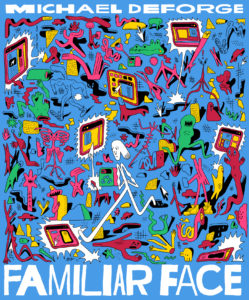
Creator: Michael DeForge
Publisher: Drawn & Quarterly
It’s strange to think about the fact that Michael DeForge has made his presence felt in the comics space for just over a decade now. He did have a couple of self-published mini-comics out before that period, but it’s safe to assume it was his short story anthology series Lose that nudged him into the spotlight. There was nothing like it at the time, possibly because no one thought to merge the bizarre with the quotidian in quite the same way.
Many of us have learned to spot a DeForge page since then because of the clues sprinkled liberally across them. They are often disorienting, full of unimaginable detail, and always manage to cram in a surprisingly large amount of information in very little space. The colors don’t seem to follow a traditional palette, bodies and faces melt, and some panels look as if they were born by mixing and matching the work of Dali and Miró in a blender.
All of this makes Familiar Face a — for lack of a better cliché — familiar face. It comes as a pleasant surprise given that DeForge is still collecting accolades for last year’s oddly endearing parable Leaving Richard’s Valley, but his creative juices don’t seem to have slowed in any way. The latest book is as engaging, humorous, and intelligent as everything that flows from his desk usually is. If there is a difference, it’s in the choice of subject matter, which is almost dystopian.
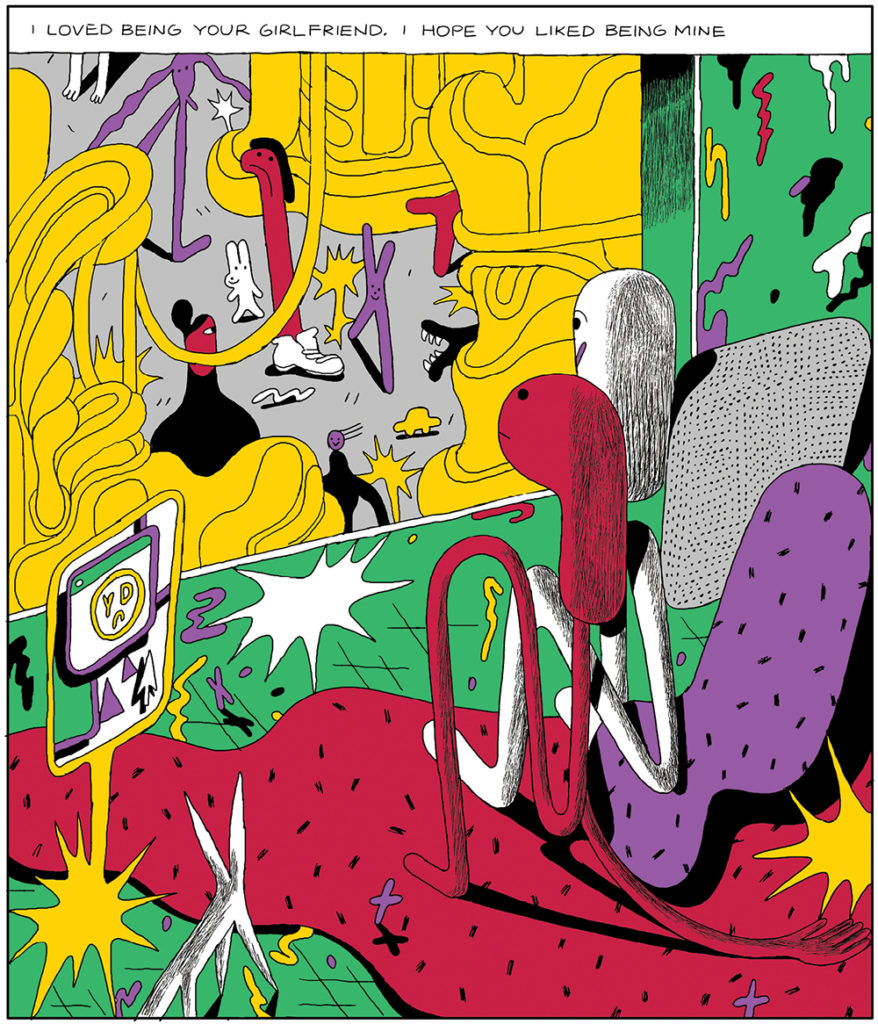
Narrated by an unnamed female protagonist who is, by turns, confused and unreliable, it documents a future world where human bodies have merged with technology to such an extent that they have to be updated the same way apps currently are. The protagonist tracks complaints from customers struggling with malfunctioning updates, allowing DeForge to make pointed comments on how we have allowed humanity to take a backseat to artificial intelligence. What doesn’t change in DeForge’s world is how relationships evolve and develop even in times of crisis.
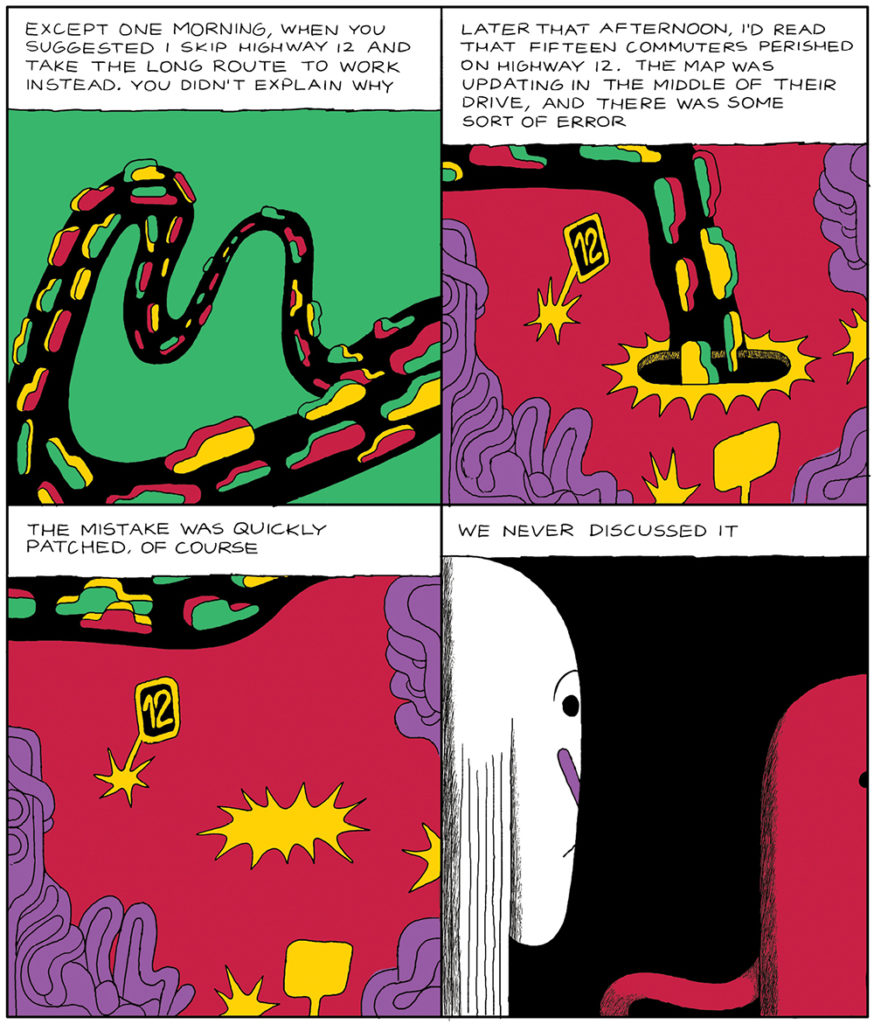
The cover alone is a great preview of what follows, depicting disembodied figures, strange mutations, the odd amputation, and what looks like a virus attacking random electronic goods. Inside, even the sexual act undergoes a change as DeForge depicts humans constantly having to “relearn each other” as every update makes them more disoriented. Despite this chaos, bonds are formed and connections are made in unlikely ways. It makes for a positive ending that can seem mildly forced but not exactly unwelcome either. Seen in this light, even the title becomes a comment on what we search for and how fluid that notion of familiarity is in a world that shifts constantly.
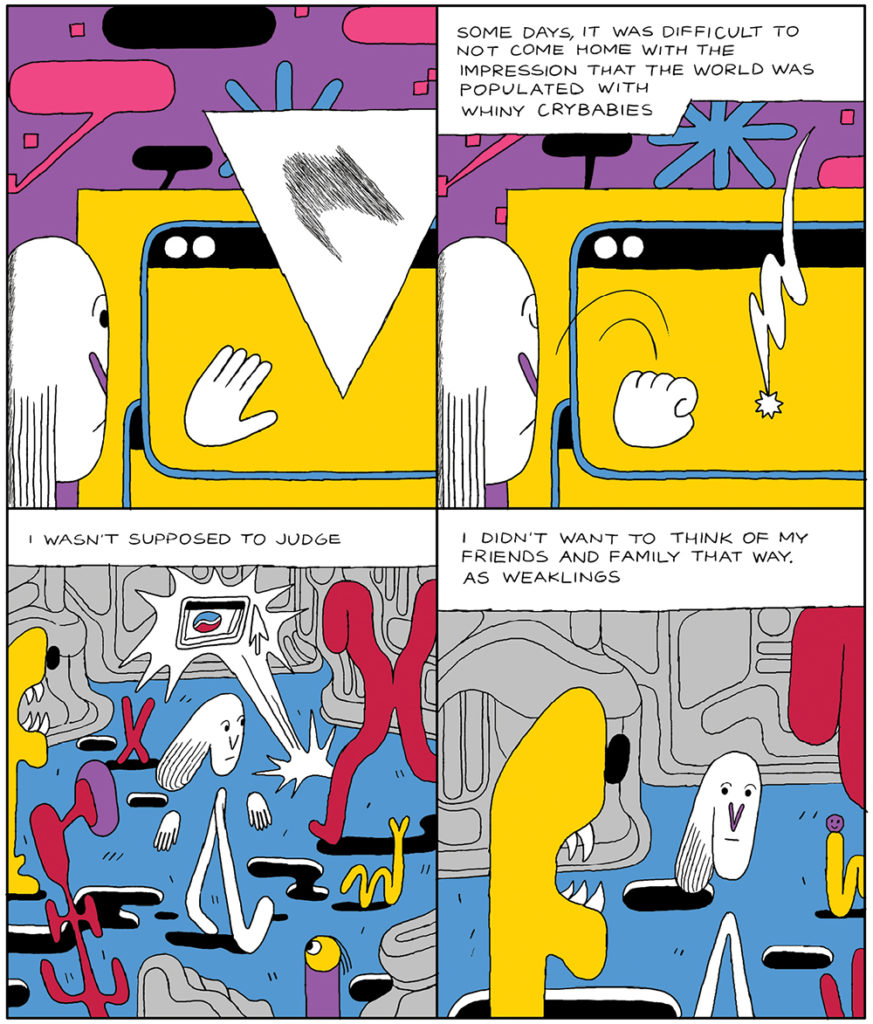
DeForge is often referred to as an indie artist, which is unfair given how he thinks deeply and engages with topics that affect us all. To slot him into a bracket that subconsciously assumes his work will appeal more to those prepared to take a risk than anyone interested in genuinely intelligent writing is to do him a great disservice. He deserves more readers, so gifting people this compact palm-sized volume is strongly recommended.

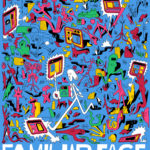

![[PODCAST] THE COMICS AGENDA: MAY THE 4TH BE WITH YOU](https://geekd-out.com/wp-content/uploads/2017/11/comics-agenda-2-150x150.jpg)
![[REVIEW] ‘BREAK OUT #1’ OFFERS A COMPELLING, CHARACTER-DRIVEN INVASION NARRATIVE](https://geekd-out.com/wp-content/uploads/2022/04/FI-e1649626262222-150x150.png)